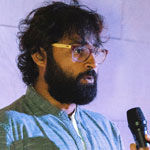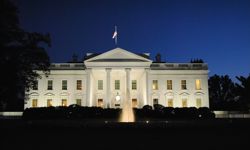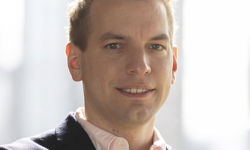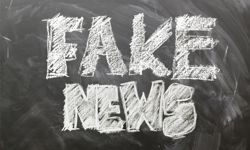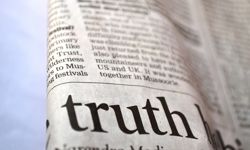
Two men dominated the Global Conference for Media Freedom in London even though they weren’t there. Jamal Khashoggi and Donald Trump.
Khashoggi, the US-based Washington Post columnist, murdered in the Saudi consulate in Istanbul, symbolises the way most killers of journalists act with impunity. The conference was told that in 90 per cent of cases, the killers of journalists are never bought to justice.
Trump was roundly criticised for his anti-press attacks. His use of “fake news” and description of journalists as “enemies of the people” were seen to undermine liberal democracy and encourage populists and authoritarian leaders.
In 90 per cent of cases, the killers of journalists are never bought to justice.
Extrajudicial execution
Agnès Callamard, the UN special rapporteur who investigated Khashoggi's death, concluding it was "an extrajudicial execution", was critical of the UN’s and international leaders’ response to his murder. She told the conference: “The killing of Jamal Khashoggi was so serious, it should be seen as an international crime requiring international jurisdiction. We need courage to stand up to the bullies. We need courage to stand up for Jamal Khashoggi. That is what is lacking.”
Human rights lawyer Amal Clooney, the Foreign Office’s special envoy on media freedom, said of Khashoggi’s killing: “World leaders responded with little more than a collective shrug.” It was announced at the conference that a panel of legal experts, including Clooney, and chaired by Lord David Neuberger, former president of the UK Supreme Court, has been set-up to develop legal frameworks to try and help protect media freedom worldwide.
The conference was a joint initiative by the Foreign Office under Jeremy Hunt and the Canadian government. Its timing coincided with the Foreign Office being engulfed in a diplomatic crisis after the UK’s American ambassador Sir Kim Darroch’s frank assessments of the Trump White House were leaked to the Mail on Sunday.
It sparked Darroch’s resignation and a police hunt for the mole. Ironically, given the conference’s proclaimed “defend media freedom” theme, the affair escalated into a press freedom row after Scotland Yard warned media publishers and editors not to publish leaked government documents. The press hit back saying it wasn’t up to the police to decide what should or should not be published in the public interest.
Within weeks of the conference, Hunt was also out after he lost the Conservative leadership election to Boris Johnson and refused to be reshuffled to a new cabinet post.
The conference, which cost £2.4 million, promoted a “Global Campaign for Media Freedom” with the ambitious aim to shine a spotlight on media abuses around the world and reverse the growing trend of violence against journalists.
The media needs to educate the public on why it’s important. It’s too diffident and should be much louder.
Practical measures
It attracted representatives from more than 100 countries, including 60 ministers, and more than 1,500 journalists, academics and campaigners. Hunt said: “Never before have so many countries come together in this cause. We send a resounding message that media freedom is not a Western but a universal value.” He announced a series of what he described as “practical measures” to help the cause of media freedom. They included:
- Joining with other governments to establish a Global Media Defence Fund, to be administered by UNESCO, funding legal advice for journalists as well as safety training for those in conflict zones. The UK will provide £3 million to the fund over the next five years.
- An international task force to help governments deliver their commitments on media freedom by developing national action plans. Every year, the UN General Assembly will meet to review progress of the task force, commending those countries where media freedom is getting better and deciding what should be done where it is not.
Hunt also pledged that the UK government would ensure whenever it proposes or amends a law, it will consider the potential impact on press freedom. He said the UK and Canada aimed to bring together a group of likeminded countries to lobby in unison when media freedom comes under attack. “Our aim is for this to be a rapid response mechanism, helping foreign ministers and ambassadors to react as one when abuses take place.”
He urged all countries at the conference to sign a “Global Pledge” on media freedom – which aims to ensure that those who abuse media freedom are held to account. A follow up conference is planned for Canada next year.
The Department for Digital, Culture, Media & Sport also announced plans for a new National Committee for the Safety of Journalists with the aim of devising a “national action plan” to ensure that those who threaten journalists are held to account.
The global decline in press freedom has been hastened by rhetoric from the leader of the world’s most powerful democracy.
Words and deeds
Critics saw a paradox in governments and their politicians promoting freedom for a press whose job it is to scrutinise them. Some governments with poor press freedom and human rights records were represented at the conference. International Federation of Journalists deputy general secretary Jeremy Dear commented: "As governments meet in London, instead of more words, journalists demand action. Today, states could release hundreds of jailed journalists, states could take action to prosecute all those who murder, attack and harass journalists. No more empty pledges, we need action."
There was always a danger that hot air would fill the massive print hall at the conference venue, the Printworks in Surrey Quays, where the Metro and Evening Standard used to roll off the presses.
But the NUJ general secretary Michelle Stanistreet injected a dose of realism when she said the biggest issue facing her members was the cut in jobs. It is estimated that since 2007, the number of frontline journalism jobs has fallen from 23,000 to 17,000. She said this had led to “hollowed out” local newspapers who did not have the staff to cover courts and local authorities, a blurring between editorial and advertising and the rise of a click-bait culture. Stanistreet called for new creative ways of funding public interest journalism and argued if the UK wanted to promote press freedom around the world, “it should lead by example here at home”. She highlighted the police raid on the homes of Northern Irish journalists Trevor Birney and Barry McCaffrey last year over the alleged theft of documents used in a documentary.
The case of WikiLeaks founder Julian Assange was also raised inside and outside [by a supporter using a loud hailer] the conference hall. At the time of the event in July, he was still held in Belmarsh Prison awaiting possible extradition to the US in a case which some believe could have a chilling effect on whistle blowers.
It was also pointed out that before her murder, Maltese investigative journalist Daphne Caruana Galizia was facing a series of libel actions via leading London law firms.
In September, a report by the Foreign Affairs Select Committee on the Foreign Office's media freedom campaign cautioned: "Currently, there are concerns that the FCO [Foreign & Commonwealth Office] has allocated too few resources, given too little detail about how it will fulfil its campaign, and taken too passing an interest in how to make it sustainable. There is anxiety that this vital initiative by the FCO risks becoming a disappointment. The FCO must now move beyond the rhetoric to demonstrate impact in defending media freedom.”
In a sea of disinformation and partisan reporting, we need to stand up for independence, impartiality, and reporting without fear or favour.
Media literacy
Some delegates argued the press should do more to promote itself and the dangers faced by journalists to its readers. Sir Alan Moses, chair of the Independent Press Standards Organisation, said: “The media needs to educate the public on why it’s important. It’s too diffident and should be much louder.”
On the issue of declining trust in the media, it was suggested media literacy should be part of the school curriculum so that young people, who get a variety of their news on mobiles had a better idea of what sources could be trusted.
Journalism professor Ivor Gaber reminded the conference how “media studies” had often been criticised as being an “airy-fairy” subject without value. He also said the UK media was not doing a very good job in making press freedom a big political issue with the public and bemoaned the lack of coverage by the national press of the conference.
Then there was Trump. Clooney told the conference: “The global decline in press freedom has been hastened by rhetoric from the leader of the world’s most powerful democracy and it will not be reversed without strong leadership from others.” She said Trump’s vilification of the US media had made honest journalists elsewhere in the world more vulnerable to attack.
The Canadian foreign affairs minister Chrystia Freeland, a former journalist, claimed: “Liberal democracies are under greater threat than ever before.” While BBC director general Lord Tony Hall argued that the world was in “the midst of the biggest assault on truth since the 1930s”.
Lord Hall, speaking as the BBC’s editor-in-chief, added: "We need to reassert the core principles of good journalism like never before. In a sea of disinformation and partisan reporting, we need to stand up for independence, impartiality, and reporting without fear or favour." He also stressed the importance of “boots on the ground” reporting and specialist journalists to counter the wave of fake news and propaganda.
Just a few weeks before the Global Media Freedom Conference, the Russian and US presidents met up at the Osaka Summit in Japan. According to Bloomberg White House reporter Jennifer Jacobs: "Trump also bonded with Putin over a scorn for journalists. 'Get rid of them. Fake news is a great term, isn't it? You don’t have this problem in Russia, but we do.' 'We also have,' Putin answered, in English. 'It’s the same.' They shared a chuckle."
Publishers and journalists should welcome any pushback against Putin and Trump and the Foreign Office and Canadian government deserve praise for making global media freedom a priority.
One of the tests will be to see how world leaders respond at the next G20. It is being held in Riyadh, Saudi Arabia, home to the killers of Jamal Khashoggi. By then, we will have a better idea if political leaders have taken strong action, such as imposing financial sanctions against rogue states, to support media freedom or continued to shrug their shoulders.
2018: a bad year
- 2018 was the worst year on record for violence and abuse against journalists: more than half of the journalists were deliberately targeted and there has been a 15% increase in such killings since 2017.
- In 2018, at least 99 journalists were killed, a further 348 imprisoned and 60 held hostage.
- Almost 1,000 journalists and media workers have been killed in the past decade.
- 93% of those killed are local journalists and 7% are foreign correspondents.
- 9 in 10 cases of killed journalists remain unresolved.
- Only 10% of the world’s population enjoys a free press.
This article was first published in InPublishing magazine. If you would like to be added to the free mailing list, please register here.


